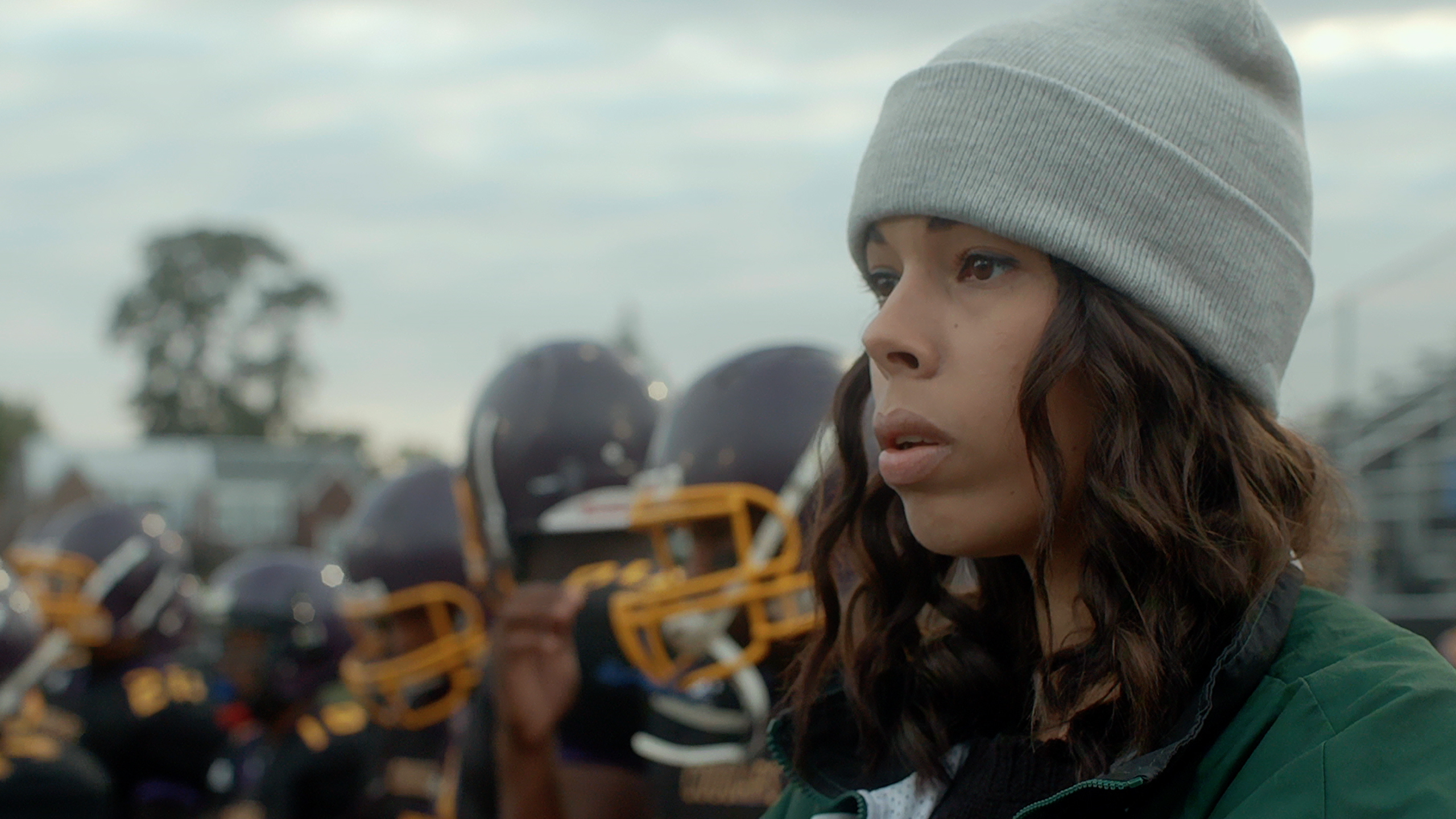 For many communities in the U.S., like those depicted in "Friday Night Lights," football is a kind of religion as much as it is commerce, a national pasttime turned into weekly spectacle around which entire cities and towns live and breathe. But in the inner city, football offers hope, a chance to stay off the streets, brotherhood and a feeling of pride that they might not get elsewhere. The sport isn’t a ritual or rite-of-passage but a tool for survival, and for many cities across the country, kids in low income high schools are at risk of losing the very thing that offers a window to a better future, and an opportunity to show off the best they can be. In 2013, the School District of Philadelphia, facing a massive budget shortfall, introduced a series of drastic cuts which included closing 24 schools. And that’s where the documentary "We Could Be King" kicks off.
For many communities in the U.S., like those depicted in "Friday Night Lights," football is a kind of religion as much as it is commerce, a national pasttime turned into weekly spectacle around which entire cities and towns live and breathe. But in the inner city, football offers hope, a chance to stay off the streets, brotherhood and a feeling of pride that they might not get elsewhere. The sport isn’t a ritual or rite-of-passage but a tool for survival, and for many cities across the country, kids in low income high schools are at risk of losing the very thing that offers a window to a better future, and an opportunity to show off the best they can be. In 2013, the School District of Philadelphia, facing a massive budget shortfall, introduced a series of drastic cuts which included closing 24 schools. And that’s where the documentary "We Could Be King" kicks off.
Directed by Judd Erlich, the focus of the movie is on the union of the Germantown High School and Martin Luther King High: after 99 years of bitter rivalry, the schools are forced to come together under one roof, with students of the former now attending the latter. As the metal detectors at the entrance suggest, tension is routine in this environment. Facing a staggering dropout rate, teachers are struggling just to keep their students on track long enough to get their diploma. Meanwhile, on the field, Martin Luther King High is looking to break a two year-long losing streak. Even worse, with former adversaries now side-by-side, it’s not certain if the team can put their differences aside and focus on winning a game. And one man is tasked with trying to get all the egos, personalities and talent on the same page: Ed Dunn.
A former math teacher laid off during a round of budget cuts, Dunn’s passion for his students and the game finds him volunteering for the tough job of coaching. The hours are long, the rewards are few, but it’s easy to see why Dunn is committed. Gentle giant Dontae Angus needs someone to instill the discipline in him required to play college ball and possibly make it to the NFL. And then there’s Salvatore Henderson, a charismatic and talented player who is also running with the kind of crowd that could jeopardize all his plans. Those are just two of the kids in the motley crew that makes up the team, all from different backgrounds and wearing mismatched practice gear, all who need guidance not just to make touchdowns but to persist in an environment of poverty and lack of resources that sets them up to fail.
It’s a lot for any one person to shoulder, which is why you wish Erlich’s film —which runs a far too lean 80 minutes— dug deeper and broadened the canvas. While Dunn’s passion is never in doubt, it would be nice to hear from the students, other faculty members and parents about what impact this man, working for free, is bringing to the lives of his players —not just the star attractions that has scouts sniffing around, but the ones riding the bench. Despite the doc commencing with a montage about Philadelphia’s "doomsday budget," Erlich only rarely leaves the field. The problems these young men face go beyond the gridiron and into the classroom, where teachers are trying to maintain a high standard as they continue to have tools taken away from them to help their students succeed. There is a much larger story going on around "We Could Be King" that is hardly acknowledged.
That said. It takes integrity and poise to do what Dunn manages with his team in "We Could Be King," and watching him in action, demanding the players not only play harder, but be better as people, is remarkable. The arc of the King Cougars will certainly put a smile on your face, and while you wish Erlich’s movie had a bit more grit, and a more diverse playbook, it makes a run for the goal line that you can’t help but cheer for. [B-]

